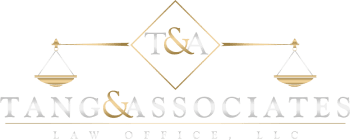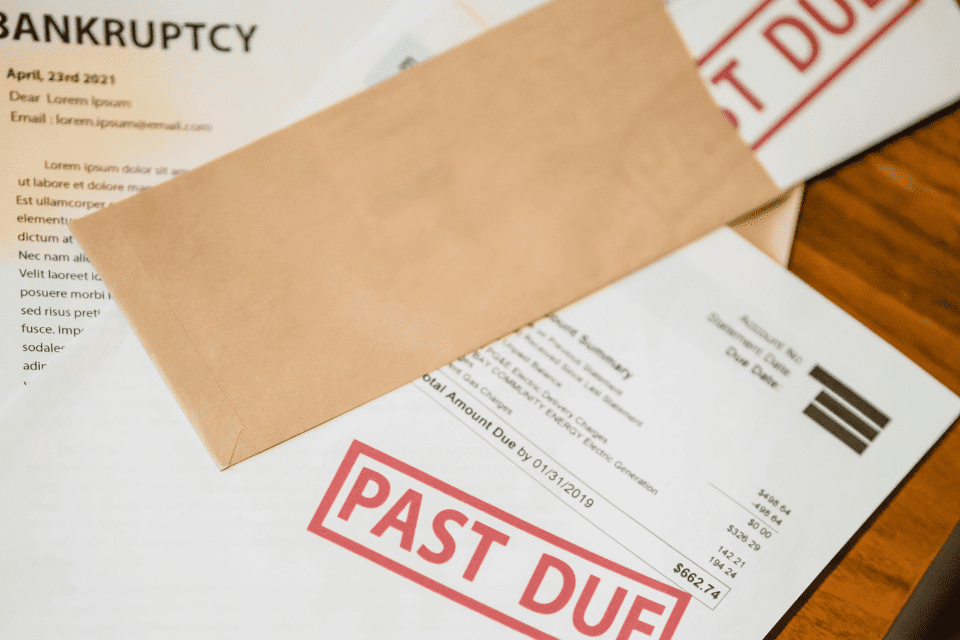Managing debt can be incredibly stressful and challenging. Constant worry about bills, creditors, and financial stability can significantly impact mental and emotional well-being.
Bankruptcy offers a legal way to find relief from unmanageable debt, providing a fresh start and a path to financial recovery.
At Tang & Associates, we specialize in helping Chicagoland residents navigate the complexities of bankruptcy. With our expertise and personalized approach, we guide our clients through the bankruptcy process, ensuring they understand their options and make informed decisions.
This article will unpack the differences between Chapter 7 and Chapter 13 Bankruptcies. By understanding the eligibility requirements, debt discharge process, and overall timeline for each chapter, you can make an informed decision about debt relief and your future.
Understanding Chapter 7 Bankruptcy
Eligibility Requirements
Chapter 7 bankruptcy, also known as liquidation bankruptcy, is designed for individuals who cannot repay their debts.
First, eligibility is determined by a Means Test, which compares your income to the median income in Illinois. If your income is below the median income threshold, you initially qualify for Chapter 7. If it is above the median income threshold, further calculations are needed to determine eligibility.
Second, the assets of the Debtor are examined to determine the exempt assets and the liquidable assets. Debtors risk losing assets that are not exempt. A Bankruptcy professional will be able to guide you through the process.
Third, the budget is examined to determine if there is disposable income to pay back any of the debts. Expenses vary county by county and must meet those county guidelines.
Debt Discharge Process
In Chapter 7 Bankruptcy, non-exempt assets are sold to repay creditors. However, many assets are exempt, meaning you can keep them.
Once the assets are liquidated, most unsecured debts, such as credit card debt and medical bills, are discharged, relieving you of the obligation to repay them.
The Chapter 7 bankruptcy process typically takes about 3 to 4 months from filing to receiving a Discharge. This relatively quick process allows you to move forward with your financial life sooner.
Should You Be Considering Chapter 7 Bankruptcy?
You might consider filing for Chapter 7 bankruptcy if you have $10,000 of dischargeable debt, a credit score below 600, you don’t own expensive property, you can’t make ends meet AND keep up with your debts, you pass the Means Test and there is little hope that you can repay your debts in the next 5 years.
People often hesitate to file, worrying about the potential drawbacks but most of the time, the benefits more than make up for the continued hardships as filing for Chapter 7 can result in a quicker discharge of debts and provide immediate relief from creditor harassment.
Typically, people worry about a loss of non-exempt assets and a negative impact on their credit score.
Non-exempt assets include things like expensive musical instruments (unless the Debtor is a professional musician), high-priced collectibles or luxury items, and cash, stocks, bonds, or investments. While it may hurt to lose a high-priced collectible or an item that has sentimental value, keeping them isn’t worth it if you are drowning in debt.
When it comes to credit scores, Chapter 7 will have a negative impact. However, if the debt continues to mount and payments are not being made, the credit score will continue to decline anyway. Filing for bankruptcy provides an opportunity to not only rebuild funds and assets but to rebuild the credit score faster.
No one wants to lose the things they love or see their credit take a significant hit. But Chapter 7 bankruptcy allows individuals to hit the reset button and begin working towards the comfortable, stable financial future they deserve.
Understanding Chapter 13 Bankruptcy
Eligibility Requirements
Chapter 13 bankruptcy, or reorganization bankruptcy, is for individuals with a regular income who can repay a portion or all of their debts over time lasting up to 60 months. Your repayment plan is based on your income, expenses, and debt levels.
Debt Discharge Process
Under Chapter 13, you create a repayment plan lasting 3 to 5 years. During this period, you make monthly payments to a bankruptcy trustee, who distributes the funds to your creditors. Once the repayment plan is complete, any remaining unsecured debts are discharged.
The Chapter 13 process takes 3 to 5 years to complete. This extended timeline allows you to manage your debt while gradually retaining your assets. Debtors looking to file Chapter 13 usually fall within the following categories: (1) they do not qualify for a Chapter 7; (2) their debts primarily comprise non-dischargeable debts; or (3) they are looking to resolve a foreclosure of a home, repossession of a car, or other secured collateral to keep and protect such assets.
Should You Be Considering Chapter 13 Bankruptcy?
If you do not qualify for Chapter 7 bankruptcy and have combined secured and unsecured debts totaling less than $2.75 million, you may be eligible to file for Chapter 13 bankruptcy.
Chapter 13 allows you to keep secured assets like your home and car, creating a manageable repayment plan that is suited to your specific financial situation. This scenario also allows you to catch up on missed mortgage and car payments, which helps you see the forward momentum.
If you are looking to discharge your debts quickly, Chapter 13 may not be the best solution for you. This process is often longer compared to Chapter 7 and you will be held to a strict repayment schedule, leaving little flexibility. And because the repayment period is longer, it has a higher overall cost to you.
As with Chapter 7, the potential drawbacks of Chapter 13 bankruptcy are outweighed by the chance to rebuild your life and your finances.
The bankruptcy process does have a certain degree of discomfort associated with it, but that discomfort is far less than the stress and anxiety that come with overwhelming debt. Bankruptcy allows you to see the end of your struggles and begin to move forward with your life.
Common Questions About Bankruptcy
Will I Lose My Home or Car?
Under Chapter 7, non-exempt assets may be liquidated, but many essential assets, including your home and car, are often exempt if there is insufficient equity.
On the other hand, Chapter 13 allows you to keep your assets while making manageable payments through your repayment plan.
How Will Bankruptcy Affect My Credit?
Both Chapter 7 and Chapter 13 will impact your credit score. However, bankruptcy also provides a fresh start, and you can begin rebuilding your credit immediately after your debts are discharged.
What Debts Are Not Discharged?
Common non-dischargeable debts include student loans, child support, alimony, certain tax debts, and debts incurred through fraud or illegal activity.
The Bankruptcy Process with Tang & Associates
During your initial consultation with Tang & Associates, we will evaluate your financial situation, discuss your goals, and explain your bankruptcy options.
This meeting helps us understand your needs and develop a tailored strategy to help you rebuild your life.
Our team will help you gather the necessary documents, complete the required forms, and navigate the complexities of the bankruptcy process.
Tang & Associates offers ongoing support throughout your bankruptcy journey. From filing your case to attending court hearings, we are with you every step of the way, ensuring you understand each phase of the process.
If you’re struggling with overwhelming debt and you are located in Cook, Lake, McHenry, Dupage, Will, or Kane County, call (773) 944-4000 to schedule a consultation. Our experienced team will help you navigate the bankruptcy process and find the best solution for your financial needs.
Disclaimer: This blog is for informational purposes only and does not constitute legal advice. Consult an attorney for legal guidance specific to your situation.

